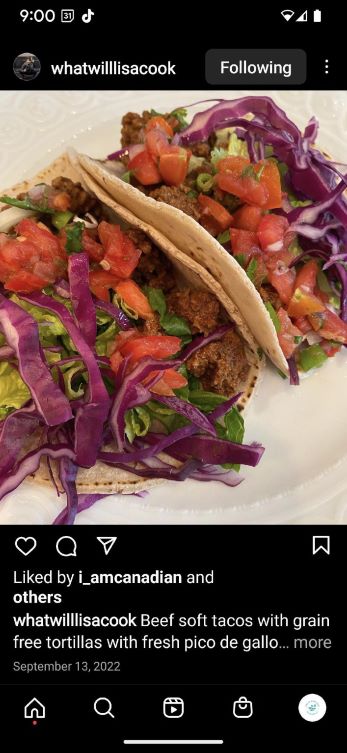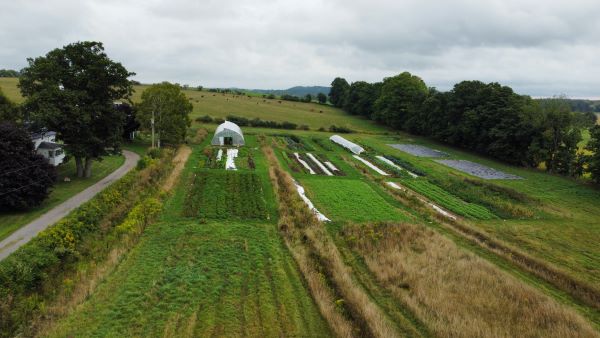How To Find A CSA That's Right For You
How To Find A CSA That's Right For You
A CSA, or Community Supported Agriculture, is a great way to support local farmers and get fresh, seasonal produce delivered to your doorstep. Whether you want to eat REAL nutrient-dense food, you want to reduce your carbon footprint or you want to buy high quality food from a farmer you can trust, then finding a CSA is a great way to achieve your goals.
I wanted to pass along some information to help you find the right CSA for you as there is usually a variety available in every region. If you'd like more info about our CSA you can find the details of our Veggie Box Subscription program here.
If you're interested in checking out all the CSAs in your area then thank you for supporting small-scale agriculture! Here are some steps to follow:
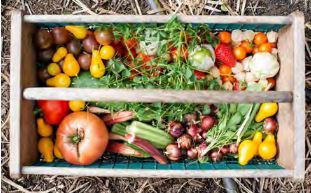
DETERMINE YOUR NEEDS AND PREFERENCES:
Before you start your search, think about what you're looking for in a CSA. Here are some things to consider:
How much produce do you need each week? Some CSAs offer different sizes of produce boxes to accommodate different household sizes. Consider how much produce you typically go through in a week and choose a size that works for you.
Do you have any dietary restrictions or preferences? Some CSAs offer options for specific diets, such as organic or vegetarian. If you have any dietary restrictions or preferences, look for a CSA that can accommodate them.
Do you want a delivery or pickup option? Some CSAs offer delivery to your home, while others require you to pick up your produce at a designated location (e.g. the farm, a farmers market). Decide which option is more convenient for you.
If the farm doesn't offer delivery, how close do you want the farm to be to your home? Some people prefer to choose a CSA that's closer to their home, while others are willing to travel a little farther for a higher quality product. Consider how far you're willing to travel to pick up your produce or if you'd prefer to have it delivered.
Are you interested in a farm that grows all its own produce? Some CSAs are operated by a single farm that grows all the produce they offer. Others may source some produce from other local farms or suppliers. Consider whether it's important to you that all the produce comes from the same farm, or if you're okay with a CSA that sources from multiple places.
Is it important for you to know the farmer? For established CSAs with delivery and no on-farm events, you might not have a lot of opportunity to meet the farmer. When there is a pick up site, there is a good chance to interact with the farmer at the pickup and ask questions. Smaller farms will have more opportunity to meet the farmer than bigger farms.
Are there any additional options that you're interested in? Some CSAs offer add-on items, such as eggs, milk, or meat, in addition to produce. Others offer farm events or volunteer opportunities. Consider which additional options are important to you.
Having a clear idea of what you want will make it easier to find a CSA that fits your needs.
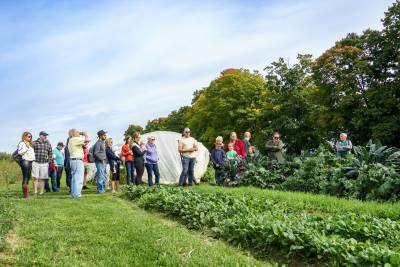
FIND YOUR LOCAL CSAs:
There are likely several CSAs in your area, so start by doing some research to see what's available. Here are some places to find CSAs near you:
Online directories: Websites like LocalHarvest and Eatwild (mostly pastured protein) can help you find CSAs in your area. Simply enter your city and you'll get a list of farms that offer CSA programs.
Farmers markets: Many farmers who participate in farmers markets also offer CSAs. Ask vendors if they have a CSA program or know of any other farms in the area that do.
Local agriculture organizations: Agricultural organizations and co-ops in your area may have information about CSAs. Check their websites or give them a call to see if they have any recommendations.
Word of mouth: Ask friends, family, or coworkers if they know of any CSAs in the area. They may have personal recommendations or be able to point you in the right direction.
Once you have a list of potential CSAs, collect a list of their contact information through Google or social media. Most CSA farms these days will have a lot of information on their websites which will help you assess which farm is best for you.
ASSESS THE FREQUENCY AND VOLUME OF THE PRODUCE BOXES:
Once you have a list of potential CSAs, take a closer look at the details of their produce boxes. Here are some things to consider:
Frequency: How often will you receive a produce box? Some CSAs offer weekly boxes, while others offer boxes every other week or once a month. Consider which frequency works best for you.
Volume: How much produce will you receive in each box? Some CSAs offer a set amount of produce each week, while others allow you to choose the amount you want. Consider how much produce you typically go through in a week and choose a volume that works for you.
Sampling: Is there an option to try a produce box before committing to a full membership? Some CSAs offer a trial box or a shorter-term membership option that allows you to try out the program before committing to a full season. This can be a good way to see if the CSA is a good fit for you. We offer an option like this with our four-week sampler.
(You can see what it looks like here)
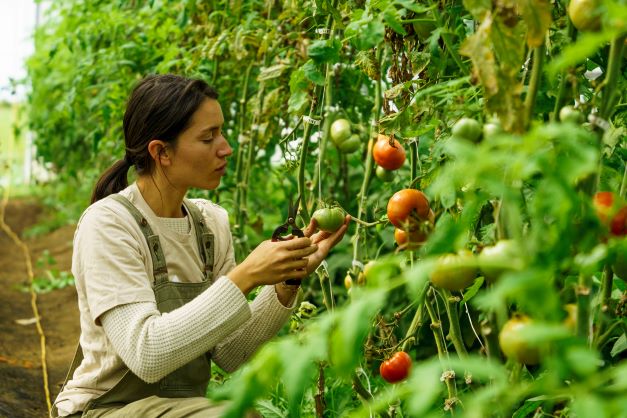
ASSESS THE FARM'S GROWING PRACTICES:
Once you've contacted the farms, ask about their growing practices. Here are some things to consider:
Organic certification: Is the farm certified organic? Certified organic farms must follow strict guidelines set by the government to ensure that they use organic methods of production. If you're interested in buying produce grown using organic methods, look for a CSA that is certified organic.
Other growing practices: If a farm is not certified organic, you will want to assess whether they are using sustainable and environmentally-friendly growing practices. Ask about their methods and see if they align with your values.
Use of single-use plastics: Consider whether the farm uses single-use plastics in their operation. If reducing your plastic consumption is important to you, look for a CSA that has a commitment to reducing or eliminating single-use plastics.
ASSESS THE COST:
Before contacting the farms, take a look at the cost of each CSA on your list. Here are some things to consider:
Number of weeks: Some CSAs offer a full season's worth of produce (e.g. 18-24 weeks), while others offer a shorter season (e.g. 10-15 weeks). Consider how many weeks of produce you want and choose a CSA that fits your needs. Knowing the price and the number of weeks will allow you to determine the average cost per produce box.
Size of the produce box: Some CSAs offer different sizes of produce boxes to accommodate different household sizes. Compare the size of the boxes offered by each CSA and choose the one that fits your needs.
Additional features: Some CSAs offer additional features that you may find valuable, such as unboxing videos, tips for storage and preparation of each vegetable, and recipes recommended for the produce in the box. If these features are important to you, look for a CSA that offers them.
DETERMINE THE TYPE OF CSA OFFERED:
CSA farms offer different types of programs to meet the needs of their members. Here are some common types of CSAs:
Traditional CSA: In a traditional CSA, the farmer provides a selection of what is in season each week. The contents of the produce box may vary from week to week based on what is available. Sometimes "extras" will be available if the farmer has extra items that they can offer to members in the box.
Market-style CSA: In a market-style CSA, members have more control over the contents of their produce box. They can choose from a selection of items offered by the farm and swap out items they don't want for others they prefer. Market-style CSA is only offered for pick up as you will be swapping produce which will ultimately end up being taken by other members at the site.
Pre-selected CSA: Some farms offer the option for members to pre-select the items they want in their produce box. The farmer will then include the chosen items in the box each week.
CHECK OUT THE EXTRAS:
Before contacting the farms, take a look at the additional features and resources they offer. Here are some things to consider:
Training in how to eat the CSA way: Does the farm offer unboxing videos or other resources to help you understand what's in your produce box and how to store and use the items? We have a Holistic Nutritionist record an unboxing video that tells you what is in the box each week, how to store it, what to eat first, what the nutrition benefits are for the different products and give you recipe ideas. It takes time and learning to get good at eating healthy so you may want your CSA to support you in that.
Blog: Does the farm have a blog where you can learn more about their growing practices and get tips for using their produce?
Recipes: Does the farm provide weekly recipes or other resources to help you make the most of your produce?
Community: Does the farm have a private Facebook group or other online community where members can share recipes and tips?
On-farm events: Does the farm offer on-farm events or other opportunities for members to get more involved and connect with their food?
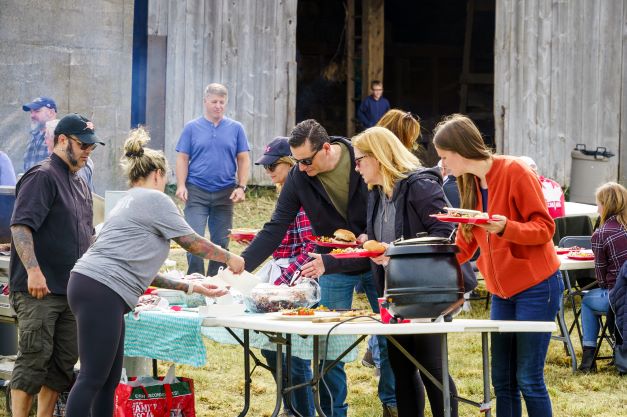
CHECK ONLINE REVIEWS:
Before contacting the farms, take a look at online reviews to see what others are saying about their experience with the CSA. Here are some things to consider:
Google reviews: Check out the farm's Google reviews to see what others are saying about their experience with the CSA. Look for reviews that mention the quality of the produce, the convenience of the pickup or delivery, and any additional resources or support provided by the farm.
Other online reviews: In addition to Google reviews, you may be able to find reviews on the farm's website or other online directories like LocalHarvest or through Facebook.
CHECK OUT THE PAYMENT OPTIONS AND REFUND POLICY:
Before contacting the farms, take a look at their payment options and refund policy to make sure they meet your needs. Here are some things to consider:
Down payment: Some CSAs require a down payment to hold your spot in the program. Check to see what the down payment amount is and whether it is refundable.
Payment methods: Find out what payment methods are accepted by the CSA. Some farms may accept credit card, e-transfers, cheque, or cash payments, while others may only accept one or two options. Choose a CSA that offers a payment method that works for you.
Refund policy: Check to see what the CSA's refund policy is in case you need to cancel your membership. Some CSAs may offer a full or partial refund, while others may not offer any refunds.
CONTACT THE FARMS:
Once you've narrowed down your list of potential CSAs based on the cost, reach out to each farm to learn more about their program. Note whether or not it's the actual farmer that is answering the phone. If you still have questions from the research above, they'll be able to help you assess and also get a level of comfort with the farmer and the farming practices.
VISIT THE FARM:
If possible, try to visit the farm to see the operation firsthand and get a sense of the people behind the CSA. This will also give you a chance to ask any additional questions you may have about their growing practices or any other aspect of the CSA.
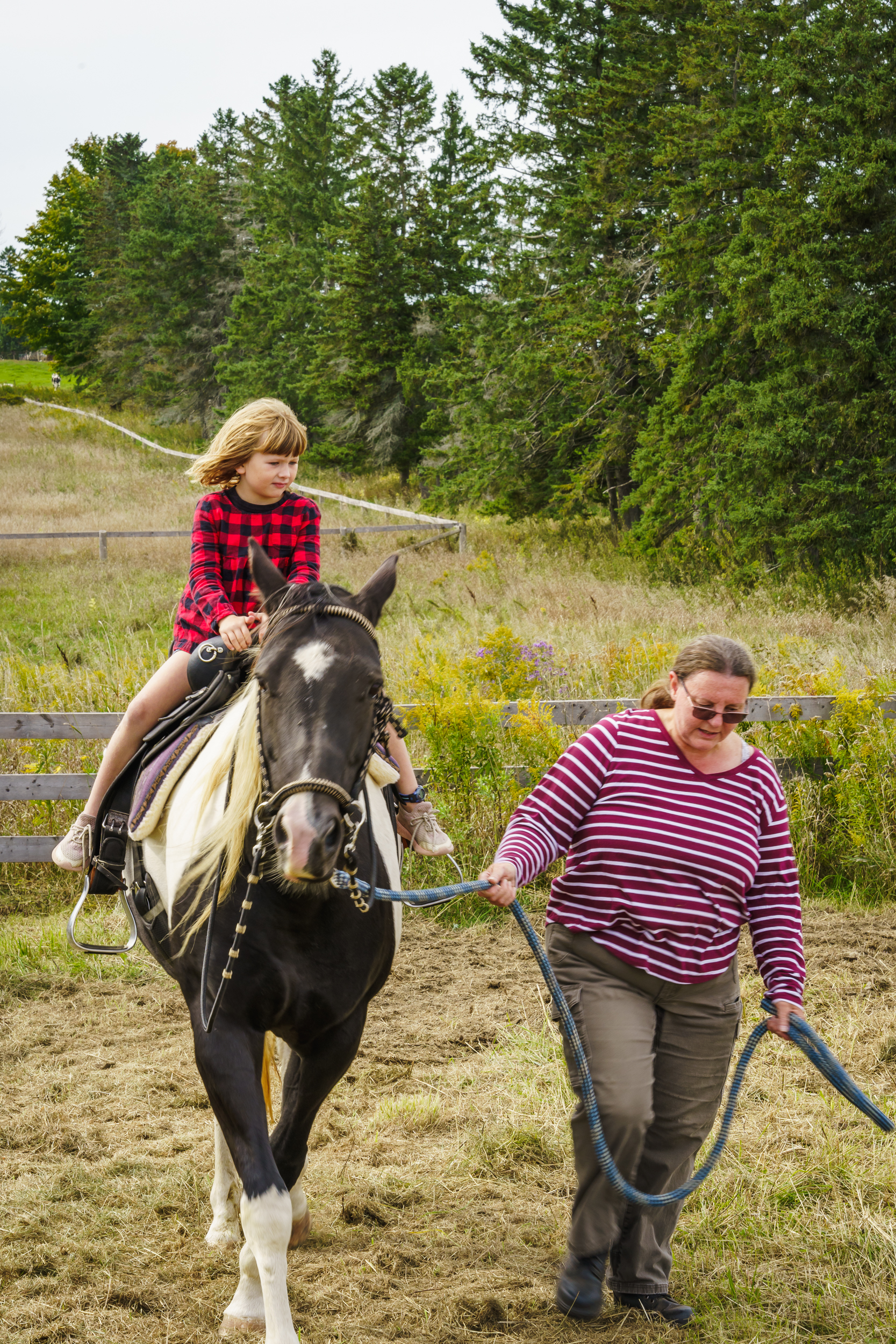
MAKE YOUR DECISIONS:
After considering all the factors, choose the CSA that best fits your needs and preferences. Be sure to carefully read and understand the terms of the CSA before signing up.
GET INVOLVED:
Once you're a member of a CSA, don't be afraid to get involved with the farm. If they have a Facebook group or other forum to share your creations with the farm's produce, share it so others can be inspired to eat healthier also. It takes several years to get good at cooking the CSA way but it pays big returns for you and your family's health.
Also, many CSAs offer volunteer opportunities or farm events, and getting involved can be a great way to learn more about where your food comes from and support the farm community.
